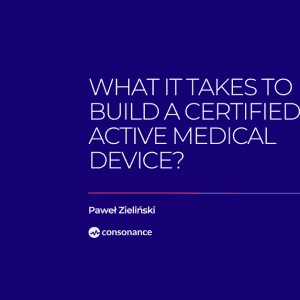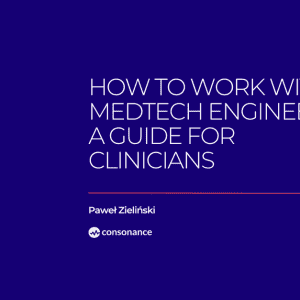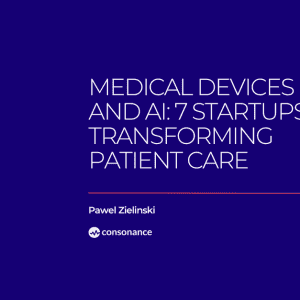Dental products market – is there a space for startups?
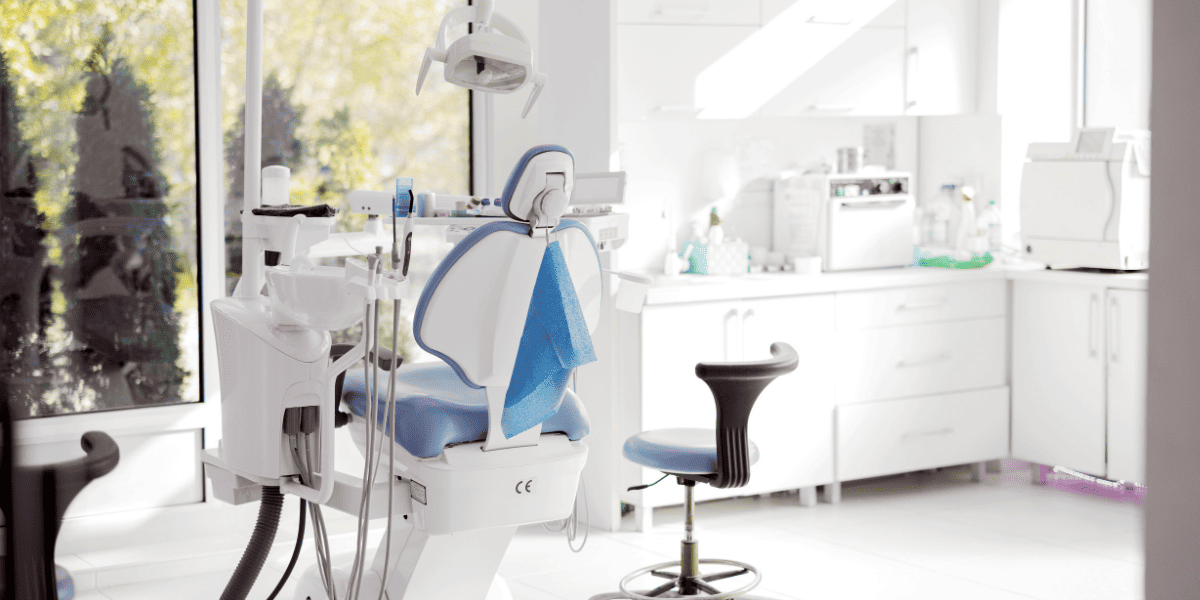
The dental products market as other medical fields is constantly evolving, and of course there are several opportunities for startups to innovate and disrupt the market. Let’s check some of them!
Table of Contents
Digital Dental Products
The integration of digital technology in dentistry has opened up new possibilities for improved diagnostics, treatment planning, and patient care. Startups can focus on developing innovative digital dental devices, such as intraoral scanners, 3D printers for dental prosthetics, augmented reality (AR) or virtual reality (VR) solutions for patient education, and software platforms for digital treatment workflows.
Dental Implants and Prosthetics
Dental implants and prosthetics have become a popular solution for replacing missing teeth. Startups can explore advancements in implant materials, design, and manufacturing techniques to develop more affordable, efficient, and patient-friendly dental implant systems. Additionally, there is a demand for innovative materials and techniques for fabricating dental prosthetics like crowns, bridges, and dentures.
Minimally Invasive Dentistry
There is a growing trend towards minimally invasive dental procedures that preserve more natural tooth structure. Startups can focus on developing dental products like devices and techniques for minimally invasive treatments such as laser dentistry, dental adhesives, and biomaterials that promote natural tooth repair and regeneration.
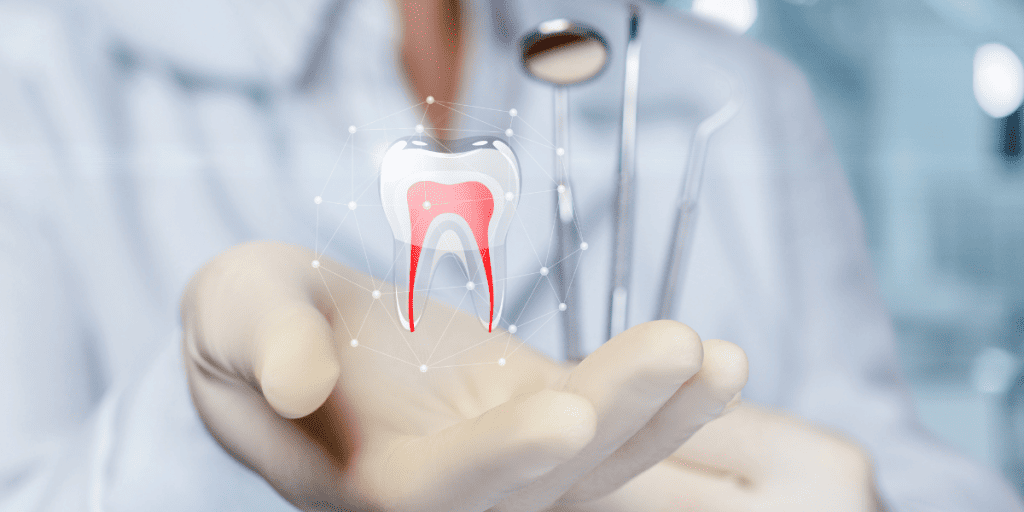
Orthodontics and Aligners
Orthodontic treatments, including clear aligners, have gained popularity due to their aesthetics and convenience. Startups can explore opportunities in this space by developing new aligner materials, automated treatment planning software, or innovative orthodontic devices that improve treatment efficiency and patient outcomes. One of startups, Dr Smile achieved huge success as Berlin-based Health-Tech Startup in the area of digital dental products and aligners. Also Impress is a developer of orthodontic technology that offers invisible aligners.
Dental Diagnostics and Imaging
Advances in dental diagnostics and imaging technologies can greatly enhance the accuracy and efficiency of dental products. Companies can develop innovative devices for early detection of dental caries (cavities), periodontal disease, and oral cancer. This can include handheld devices for chairside diagnostics, portable X-ray systems, or novel imaging techniques like optical coherence tomography (OCT) for dental applications.
Dental Robotics and Automation
Robotics and automation have the potential to streamline dental procedures and improve treatment outcomes. Startups can explore developing robotic-assisted devices for precise and efficient dental surgeries, automated systems for prosthetic fabrication, or AI-powered tools for treatment planning and decision-making.
“AI in dentistry has started to bloom in recent years. From a dental perspective, applications of AI can be classified into diagnosis, decision-making, treatment planning, and prediction of treatment outcomes. Among all the AI applications in dentistry, the most popular one is diagnosis. AI can make more accurate and efficient diagnoses, thus reducing dentists’ workload. On one hand, dentists are increasingly relying on computer programs for making decisions. On the other hand, computer programs for dental use are becoming more and more intelligent, accurate, and reliable”.
Source: https://www.frontiersin.org/articles/10.3389/fdmed.2023.1085251/full

Moreover, robotic systems have been developed to assist in performing complex dental surgeries with greater precision. These robots are equipped with advanced sensors and imaging capabilities, allowing for real-time feedback and accurate navigation during procedures. They can assist in procedures like dental implant placement, bone grafting and other maxillofacial surgeries. Additionally, robots can execute dental procedures with a level of precision difficult to achieve manually, resulting in better treatment outcomes and patient satisfaction. Some startups, such as Neocis from the USA, develop robotic technologies for applications in the healthcare industry. In 2022, the system received a Cellerant Best of Class Technology Award from a panel of leading dental technology experts. It is the first and only robotic platform for dental surgery.
Automated systems can also streamline dental workflow, reducing treatment time and allowing dentists to attend to more patients. Automation helps minimize human errors during procedures, leading to safer and more reliable treatments. Ensuring the safety and compliance of robotic systems in dental practices require adherence to strict regulatory standards. While dental robotics and automation show promising potential, it’s important to note that they are not meant to replace dentists but to augment their skills and enhance patient care. As technology advances and becomes more widespread, we can expect dental robotics and automation to continue transforming the field of dentistry for the better.
Tele-dentistry and Dental Remote Monitoring
The adoption of telehealth and dental remote monitoring technologies has increased in various healthcare sectors, including dentistry. Startups can focus on developing platforms and devices that enable remote consultations, monitoring of oral health conditions, and patient engagement in dental care.
Summary
Nobody expected a pandemic, much less the lockdowns and quarantines. The COVID-19 pandemic presented unprecedented challenges for the dental market, with temporary closures, reduced patient visits, and increased infection control measures affecting dental practices worldwide.
It’s important to note that the dental market is dynamic. Additionally, ongoing developments in technology, healthcare policies, and societal changes may continue to shape the challenges faced by the dental industry. As you can see from the analysis, there are a lot of them.
When starting a dental device startup, it is crucial to consider factors such as regulatory requirements which are directly contained with engineering, market competition, intellectual property protection, and collaborations with dental professionals for validation and feedback. Conducting market research, understanding customer needs, and building a strong network within the dental industry can greatly contribute to the success of a dental device startup.
The answer to the question posed in the title, whether there is a space for the development of startups on the dental market, seems obvious. There is space, especially automation together with devices and AI gives huge possibilities both in the process of diagnostics and treatment.
If you’re in pursuit of dental innovation, don’t hesitate and …
Contact us
We can help you to get ahead of the curve!




